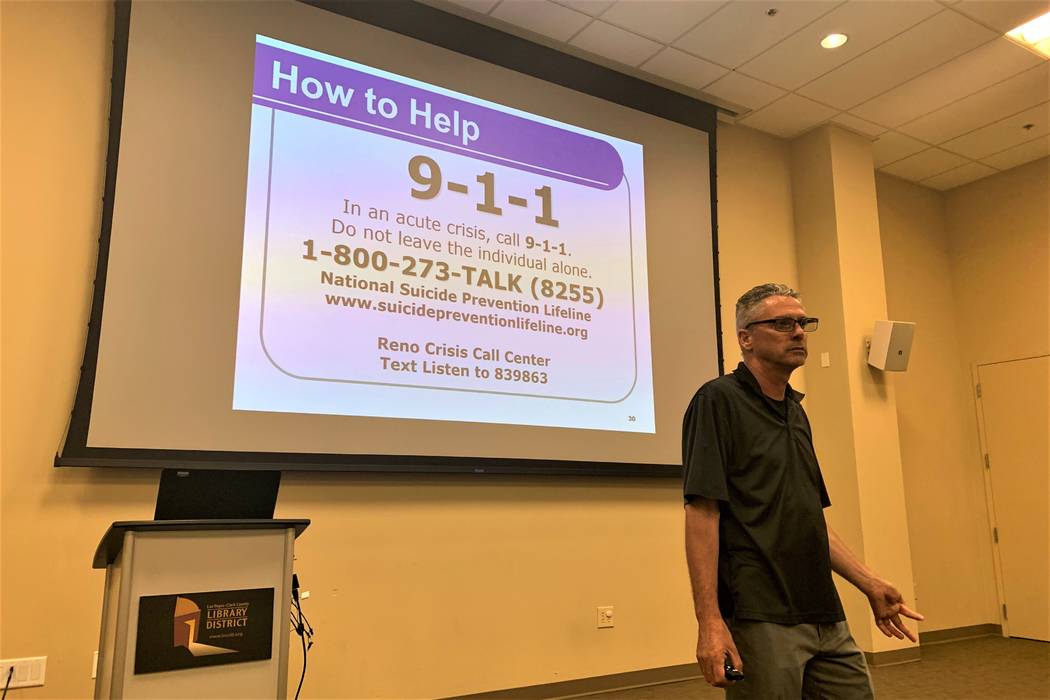Las Vegans learn ways to recognize suicide warning signs, act
Jessica Woods of Summerlin was 19 when she lost her father, in her mid-20s when she lost her grandfather and 32 last year when she lost her brother-in-law — all to suicide.
“I got into counseling right away,” Woods said. “You feel a lot of things when it happens. It’s death magnified because of the way the death happened — very traumatic. It’s been almost 14 years since my dad, and it still hits me sometimes. I don’t think it ever goes away for those left behind.”
Suicide is the eighth-leading cause of death for Nevadans, according to most recent reports from the Centers for Disease Control and Prevention. The state has the nation’s 11th-highest suicide rate, according to the Office of Suicide Prevention’s website.
Woods was one of about 30 attendees at a community gatekeeper training class hosted by the Nevada Office of Suicide Prevention on April 24 Centennial Hills Library. It’s one of several such classes planned there through November.
“The goal of this class is to help attendees pay attention to the warning signs of suicide,” said Richard Egan, a training and outreach facilitator with the office who headed the event. “If there is any talk of suicide, the thought is there. It just may be a matter of time before they act upon that thought. Suicide behavior is not a way to just get a attention. They needed that attention, and we need to address it.”
During the classes, participants learn about the nature of suicide, myths and facts, warning signs, risk and protective factors, and ways to sensitively but effectively approach those suffering.
“I wanted to take this class to better familiarize myself with how you can prevent it,” Woods said. “I’m a registered dental hygienist and I work with the Southern Nevada Health District, so I keep in contact with a lot of patients and they open up to me. I want to make myself more of a resource for those around me.”
Woods said one of the main things she learned was to not shy away from an uncomfortable topic.
“When you notice someone exhibiting the signs or expressing they’re having these thoughts or feelings, it’s important to be direct; ask them flat-out if they’re feeling suicidal.”
Egan said the class is one of many ways the Office of Suicide Prevention is working to inform the public.
“Anyone can be a gatekeeper if they are open to the conversation — if they recognize the warning signs and ask what’s going on,” he said. “Not every death is preventable; I know that. We will lose some, but I want people to be able to identify the signs so we can save as many lives as we can.”
Contact Mia Sims at msims@
Suicide-prevention resources
For more information about classes and training sessions, visit bit.ly/2DTAUxG.
To learn more about how to help, visit suicideprevention.nv.gov/SP/WhatCanYouDo.
If you or someone you know is in crisis, you may call 800-273-8255.



















